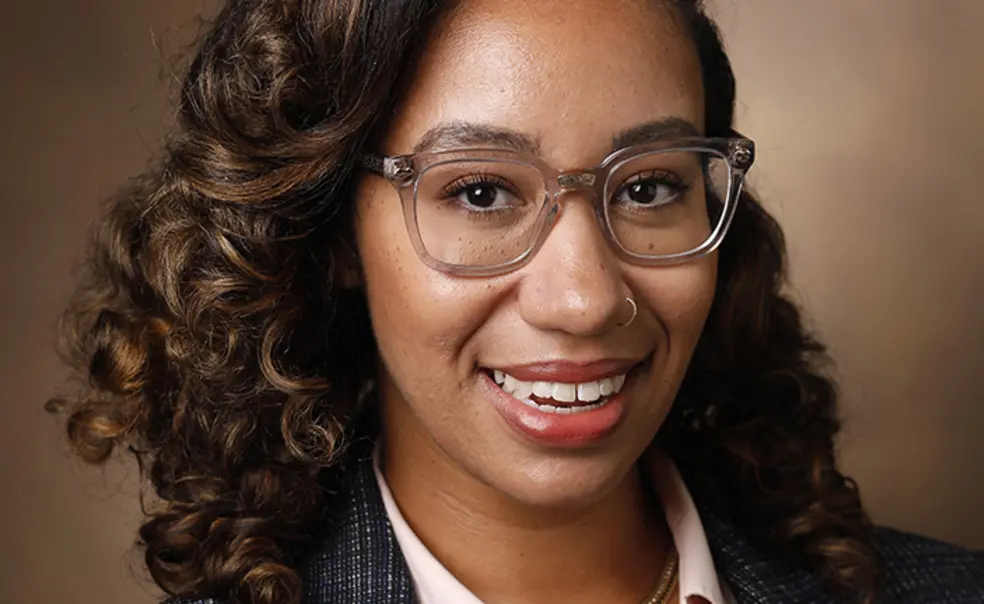Q&A: Dr. Amanda Satterthwaite ’10 on COVID-19 and Mental Health
‘A lot of what was lost during this pandemic is human connection’
In March, Dr. Amanda Satterthwaite wrote for PAW about her experience as a fifth-year resident in a New Orleans ICU during a spike in COVID-19 cases. Today she’s in Nashville, Tennessee, seeing patients after they leave the ICU through Vanderbilt University Medical Center’s psychiatry department.
She spoke with PAW about what she’s been seeing on the mental health side of the pandemic — how it’s affecting patients and healthcare professionals and how we can heal when the pandemic finally ends.
What are you seeing now compared to March?
When I was working in the ICU, that was extremely hands-on. I was seeing a lot of mortality, seeing the pandemic and the treatment at the beginning. And now I’m reflecting on things that we didn’t know back then, the difference in treatment that’s offered. For example, I got a consult today on somebody who was intubated, who had a very — in their opinion — traumatic ICU experience and now just needs some ongoing support. I had another patient, he was in his 70s and had COVID pneumonia. He said he wanted to know that the physicians cared, and he felt the entire time he was going through that experience nobody really touched base with how he was doing emotionally.
You know, at that time, we were so afraid of COVID. I think we still are, but the pandemic has been going on for so long that I think people have gotten emotionally a little bit numb to it. But I did wonder what the patient experience would be like, and how they’re feeling with physicians limiting the time that they spend with the patient because of risk of being infected, seeing physicians all garbed up and gowned up, and not being able to see people smiling or not being able to see people’s full emotional presence when they’re caring for them.
I see the providers are having lasting effects, emotionally, from the trauma that they endured with treating COVID patients. And providers are pretty tired. One thing I noticed in myself was how nervous I got when I realized that the numbers here in Nashville were starting to skyrocket in November. I would have flashbacks of my experience in New Orleans in the ICU. Being a psychiatrist I’m hyperaware of symptoms, and I thought to myself, “Oh wow, I do have just a smidge of PTSD.” And my experience, my trauma, was limited. So I can’t even imagine how patients that have COVID, that have been through the ICU, been intubated, have had multi-organ failure and somehow got out of that, what their trauma experience is like.
What’s this going to look like on the other side, when the pandemic is over?
A lot of people are going to have some mental health struggles that they are going to be uncomfortable with, and they’re not necessarily going to be aware of it or looking out for it. For instance, I think a lot of physicians, particularly the front-line workers — and we can’t forget the nursing staff, everybody involved — I think that they are going to have some mental health issues after this that are going to need to be addressed. And I know myself and I know the phenotype of some other physicians that may not be very eager to seek help. We’re going to have to get comfortable with checking in mentally and asking for help when we feel like our mental health is deteriorating.
How do we heal?
I think that a lot of what was lost during this pandemic is human connection, and I think we have tried to come up with different ways of making up for that, such as Zoom meetings or Zoom happy hours, social media. But it can’t really compare to genuine human connection. One big part of healing is going to be connecting with others, possibly like group therapy or just sharing your experience with other people, finding other people that have had a similar experience, and us all kind of educating ourselves on awareness of our mental health, and checking in with each other, and just supporting one another in the recovery process.
Is there anything else you’d like to say?
One thing that I am trying to be a proponent of is to educate people about getting vaccinated, especially people of color, because I do think that we have been disproportionately affected. So that’s something that I’m trying to do, just let my friends and family know that it’s safe. I’ve done the research, I’ve been vaccinated myself. At the end of the day I think that the vaccine is a resource, and oftentimes people in marginalized communities and in resource-poor communities get left out on that. I really hope that’s not the case with the vaccine. I want us to educate ourselves about the vaccine and get vaccinated.
Interview conducted and condensed by Elisabeth Hulette Daugherty.












No responses yet